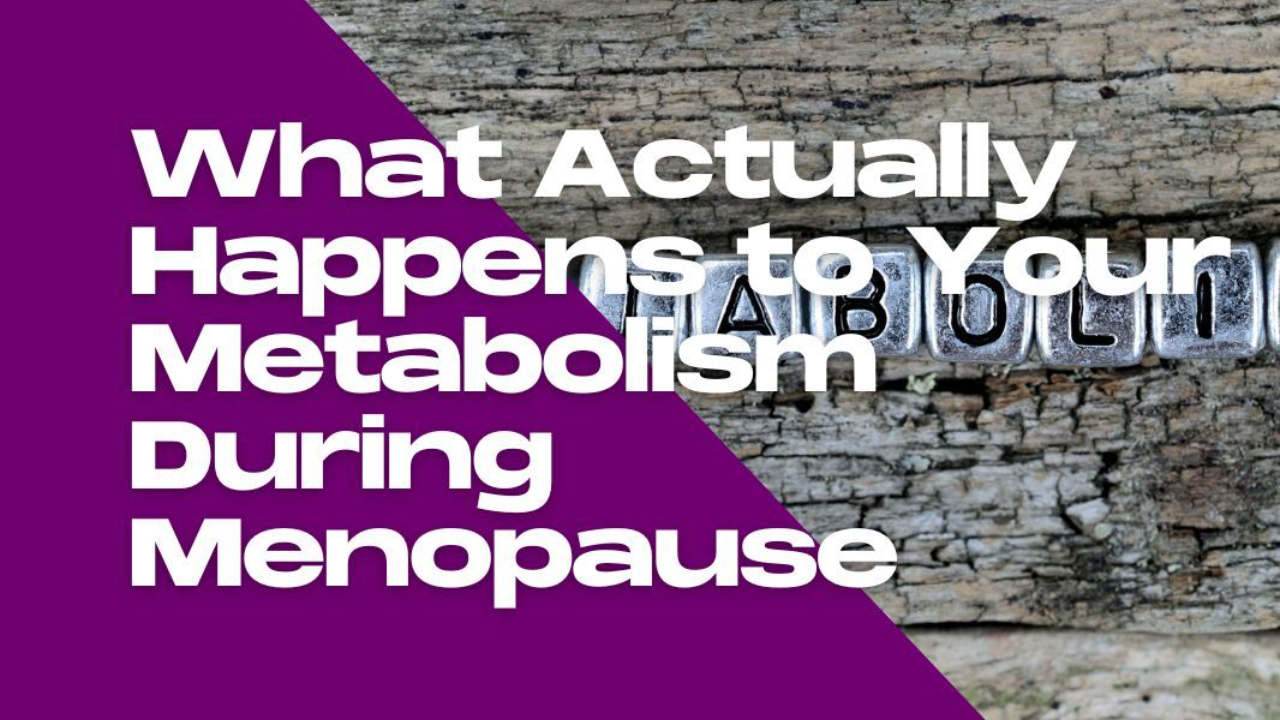
What Actually Happens to Your Metabolism During Menopause
Nov 14, 2023Research shows our metabolism doesn't dim at midlife—but does that really matter?
by Selene Yeager
Our society has had a metabolism obsession for decades. I cannot count how many times the magazines and publishing houses I worked for cooked up storylines and entire books based on “Mastering Your Metabolism!”
Conventional wisdom has long held that slowing metabolic rate (the number of calories you burn just living) was to blame for midlife weight gain (for the sake of keeping it simple, I’m not going to go into the blaming and shaming of the diet culture here, which is a problem all its own). Everyone’s metabolism was thought to start a steady decline in adulthood, especially after 30, and some believed metabolism took a bigger dip around menopause. Moreover, some people were thought to have naturally slow metabolisms. Others were thought to have naturally speedy ones.
These long-held beliefs are mostly false, according to a major study of more than 6,400 people, ages 8 days to 95 years from 29 countries that got a lot of press coverage at the time and continue to pop up, further fanning the flames of our metabolism preoccupation.
Specifically, the study revealed that our metabolism picks up speed until about 1 year of age, when it hits peak. Controlling for size and muscle, women and men have similar metabolic rates. Metabolism holds steady from 20 to 60, when it starts a gradual, steady decline as we cross into our sixties.
Interestingly, that part about some people having naturally lower or higher metabolisms holds true. Largely overlooked in the hoopla surrounding this study was that about a quarter of the people were outliers and had metabolic rates significantly higher or lower than the average (though their general life pattern followed the same trajectory).
But honestly, when it comes to what most people are concerned about with regard to metabolism, which is weight gain, this study doesn’t really tell the story, and “metabolism” is a red herring distracting from the larger picture.
Because it was not designed to look at causes of weight and body composition changes over time, this study didn’t take myriad factors into consideration, including insulin sensitivity, muscle protein synthesis (how well you make and maintain muscle, which impacts your energy expenditure), or the influence that changing hormones have on these factors as well as fat storage.
That is to say that for women going through the menopausal transition, this study alone isn’t really that meaningful. Your metabolic rate may not be changing, but all that other stuff is.
It’s harder to build muscle. Hormonal changes trigger your body to store more fat (which produces estrogen). You may have higher levels of cortisol (which is also linked to fat storage). You’re likely to become more insulin resistant and carb sensitive. So sure, the body composition changes you’re experiencing may not be pinned to your fundamental metabolic rate. But that doesn’t mean you aren’t experiencing them. And it sure as shit does not mean, as some have been quoted, that you’re just eating more and exercising less--a dismissive trope that isn’t relevant for women who are active and/or athletic and often following training plans for years, if not decades. (For a full discussion on this, I encourage you to check out the Hit Play Not Pause episode “Weighty Matters” with Diana Reid, MPH, RDN.)
This is also a long way of saying that the advice that we’ve been dishing out here at Feisty Menopause and on the podcast for the past three years holds true. You want to prioritize strength training that includes heavy lifting; do sprint interval training; increase your protein; be selective with carbohydrates; manage stress, and work with your changing physiology to make and maintain muscle, recover well, and feel good so you can keep doing the activities you love. All of that matters more than your fundamental energy expenditure (aka “metabolism).
As to why metabolism slows down around age 60, that is up for further investigation. It’s also interesting to note that this metabolic decline was not linked to an increase in weight in the study (again, metabolism is not the whole story with weight gain and loss). The researchers hypothesize that it may “reflect a decline in organ-level metabolism.” In other words, our organs may not be functioning as well with age, so they’re not using the same amount of energy. There will undoubtedly be more research on that in the years to come, but it’s another reason to eat well, move lots, and remove as much harmful stress from your life as possible to keep yourself as healthy as you can.
Finally, this isn’t to say that this study is meaningless. Seeing how aging affects metabolism may have important implications for understanding and treating diseases in children and for adults as we enter later adulthood. The formulas that are used to estimate daily calorie burn may change. But in the end, movement, muscle, and menopause symptom management are more meaningful than fretting over “metabolism.”
Get Feisty 40+ in Your Inbox
We hate SPAM. We will never sell your information, for any reason or send you emails that suck!


